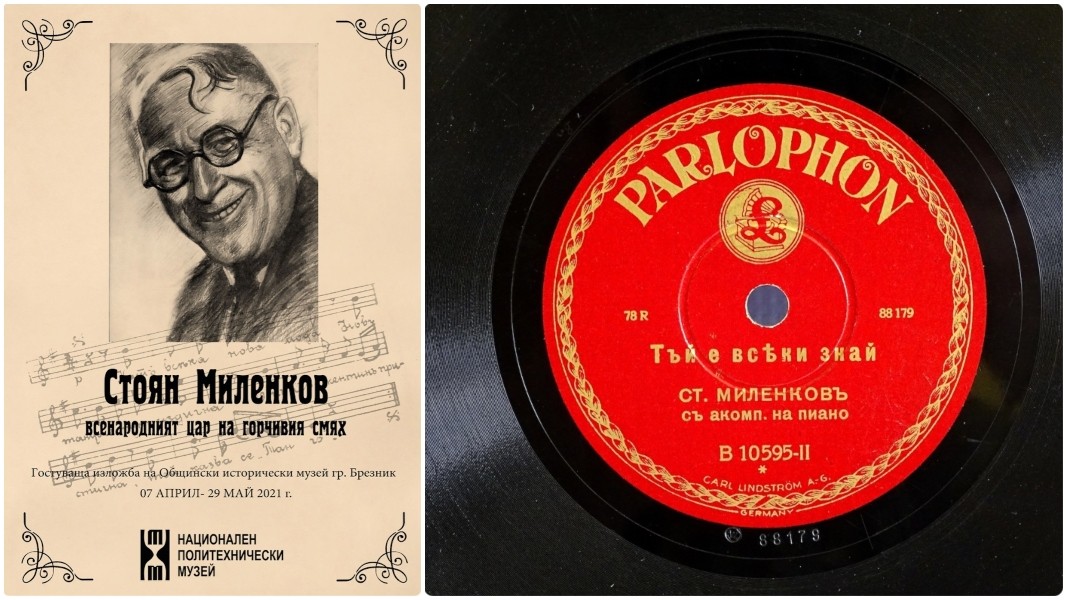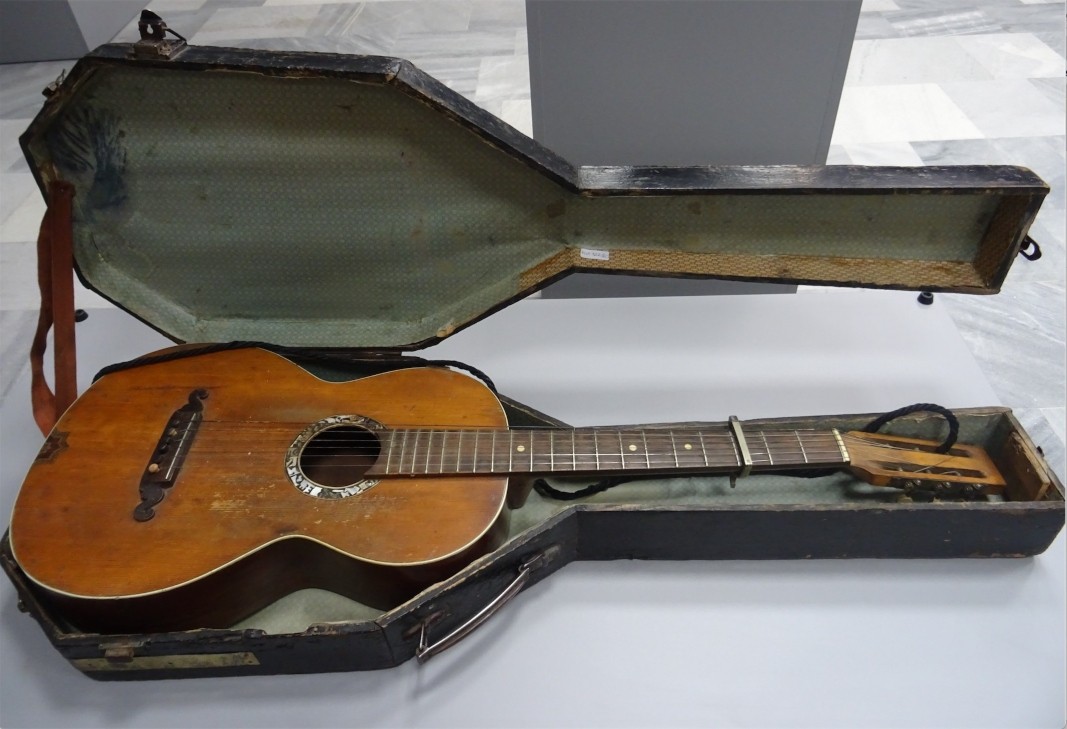A guest exhibition at the National Polytechnic Museum in Sofia reveals the story of a true troubadour from the first half of the twentieth century. Stoyan Milenkov was born in 1889 in Breznik and his activities do not fit into a simple definition. He was a poet, actor, musician, humorist, satirist, and today some even call him a rapper.
A rebellious student, he dreamed of studying drama in Paris and barely finished sixth grade of high school. In Paris he graduated from the school of Charles Masset and studied with renowned Comedy Française actor Paul Mounet, gaining experience as an assistant director and intern in several theaters. He returned to his homeland with a diploma in 1911 and initially worked at the New National Theater and the National Theater and wrote the libretto of the operetta "Moralists".

"In the years between the two world wars, the whole of Sofia knew his verses by heart," Madlen Yaneva of the National Polytechnic Museum says. “People were singing his songs in the streets, in the trams, in their homes, and the newspapers that printed his works were the first to sell. Stoyan Milenkov ridiculed negative manifestations in public and political life, even in times when freedom of speech and press was suppressed. In the foreword to his collection ‘Carnival without Masks - between the Cabaret and Parnassus’ Stoyan Chilingirov wrote that Milenkov was the founder of joke, ridicule, mockery, and humor, constructed according to literature standards and would leave a lasting mark that those who underestimate him could only dream of."
"The whole of Bulgaria knew who Stoyan Milenkov was and when he appeared in a public place, one had the feeling that he was a close friend of everyone," art critic Dragan Tenev says in an interview from 1994, preserved in the BNR's Golden Fund. “If he, a graduate of the Paris theater school, had stayed to sing his songs by the Seine and not by the Perlovska River, he would have gained the fame of Maurice Chevalier. Everything he wrote remained in the memory of my brothers because it was relevant and never neutral. He had a social position in art and defended it in humorous style. In Paris, he heard the chansonniers in the avenues and back in Bulgaria he used to walk in the street with his guitar in hand.”

No matter which page from the collection of Stoyan Milenkov you read, you will see that nothing has changed since the 20s and 30s of the past century and his verses are still relevant today, Madlen Yaneva says.
With his guitar in hand, Stoyan Milenkov traveled around towns and villages, singing his songs. After the change of the political system in 1944, he moved to the circus stage where he received his last rounds of applause. His life, full of poetry and art, ended at the age of 64.
English: Alexander Markov
Photos: National Polytechnic Museum
Professor Vladimir Kefalov is among the scientists who have been awarded the prestigious Bresler Prize in Vision Science. Professor Kefalov earned the award in 2019 for his groundbreaking work on photoreceptor cells in the retina . His research is a..
Knezha-Sofia-South Africa-Botswana and ... Asenovgrad. These are the stations in the life journey of our compatriot Darena Gesheva, which will surely provide her with countless memories to tell friends and visitors to her café in the small town of..
A cup of black coffee, a bowl of raspberries and chocolate, combined with a view that takes your breath away. Sounds soothing and dreamy, doesn't it? For years, pianist Dilyana Hristova has been looking for and finding similar places at home and abroad..

+359 2 9336 661
